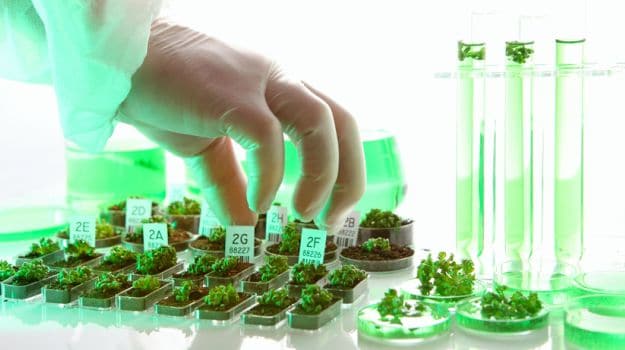Amid speculation over the fate of genetically modified crops, India's Environment Ministry on Monday said that a regulatory framework supported by several guidlines is there to ensure biosafety of all types of genetically engineered organisms."India has a robust regulatory framework for ensuring biosafety of all types of genetically engineered organisms under the Environment (Protection) Act, 1986," Environment Ministry Additional Secretary and Chairperson, Genetic Engineering Appraisal Committee (GEAC), Amita Prasad said at South Asia Biosafety Conference at Hyderabad, according to an official statement.These regulations, she said, are supported by a series of guidelines to deal with various aspects.
Emphasising capacity-building and sharing of experience to ensure effective implementation of the biosafety regulations, she commended the research institutions for their initiatives towards developing newer products relevant to the national needs.Pointing out the food crisis and challenges ahead to achieve food security amid climate change and dwindling natural resources, National Academy of Agricultural Sciences Vice President Anupam Verma noted that "the world has no option, but to accelerate utilisation of the available and emerging technologies for improving world food production".He stressed that agriculture biotechnology is a powerful tool for addressing the emerging challenges, as already demonstrated by the fast adoption of such technologies in dealing with biotic and abiotic stresses.The Union Enviroment Minstry two weeks ago invited written submissions for the proposal on authorisation of environmental release of Genetically Engineered Mustard. The submissions will be received upto September 5, the ministry said.(Except for the headline, this story has not been edited by NDTV staff and is published from a syndicated feed.)
Emphasising capacity-building and sharing of experience to ensure effective implementation of the biosafety regulations, she commended the research institutions for their initiatives towards developing newer products relevant to the national needs.Pointing out the food crisis and challenges ahead to achieve food security amid climate change and dwindling natural resources, National Academy of Agricultural Sciences Vice President Anupam Verma noted that "the world has no option, but to accelerate utilisation of the available and emerging technologies for improving world food production".He stressed that agriculture biotechnology is a powerful tool for addressing the emerging challenges, as already demonstrated by the fast adoption of such technologies in dealing with biotic and abiotic stresses.The Union Enviroment Minstry two weeks ago invited written submissions for the proposal on authorisation of environmental release of Genetically Engineered Mustard. The submissions will be received upto September 5, the ministry said.(Except for the headline, this story has not been edited by NDTV staff and is published from a syndicated feed.)
Advertisement










